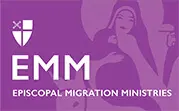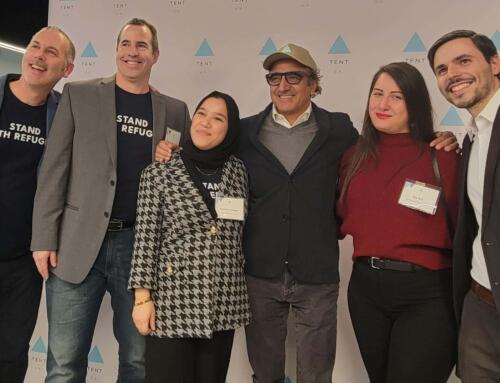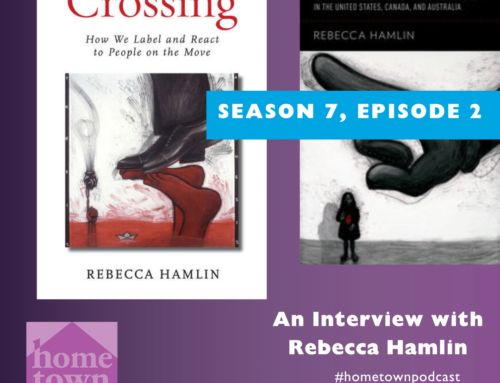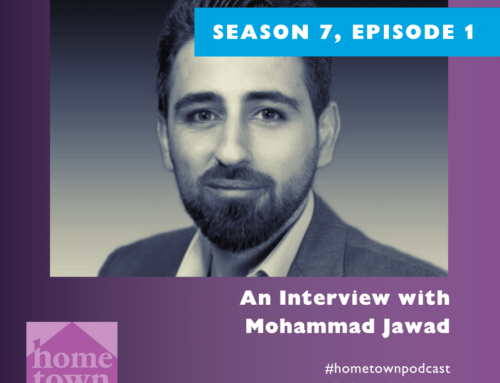A reflection by Richard Mammana, Associate for Ecumenical and Interreligious Relations, The Episcopal Church
One branch of my mother’s family came to Pennsylvania as religious refugees in 1737, following the suicide of their husband and father in the same year. My seventh great-grandfather Caspar Wagener’s death—whispered about still by my grandmother when she was carrying out her duty of oral history transmission to my generation—came about at the end of the persecution of a minor religious group in far eastern Germany. They carried the names, if not the gifts, of the Magi: Caspar, Balthasar, Melchior.
The Confessors of the Glory of Christ—the only name the group adopted—were followers of a now-obscure German reformer named Caspar Schwenkfeld von Ossig. With an ecumenical vision of a “middle way” of one church including all believers, Schwenkfeld rejected church forms (such as the Eucharist) about which controversies divided Christians from one another. Luther secured Schwenkfeld’s expulsion from territories where his followers were protected, and Schwenkfeld spent the rest of his life in exile. Their leader was buried in secret when he died in 1561, and the location has never been betrayed.
The Confessors of the Glory then entered a period of two centuries as what we would now call internally displaced persons. Caught between Lutherans and Roman Catholics, the Schwenkfelders persisted for two centuries in Europe despite legendary indignities. They were denied burial in consecrated ground, and forced to bury their loved ones along a cow-path. Their men were conscripted despite religious aversion to military service. They were fined heavily for failing to attend Mass, with the proceeds used to build beautiful chapels that are still standing in Harpersdorf and Liegnitz and Ober Langneundorf. Their children were forced to attend public Catholic catechesis. The adults were interrogated by a designated Jesuit mission—led by Father Johannes Milan and Father Karl Xavier Regent—aimed at rooting out their heresy.
They decided to attempt diplomacy to secure protection for themselves, and sent a three-man embassy to the Hapsburg court in Vienna. Over the course of four years, between 1721 and 1725, the delegation—including my eighth grandfather Balthasar Hoffrichter—presented a series of eleven unsuccessful petitions for toleration. (The famous petitions were only unearthed from archives in 2016.) The failed embassy represented the community’s last and best efforts to live within the post-Reformation system of official religions.
By this time, the community had been reduced to about 50 ragtag families, some of whom fled to the protection of the Moravian leader Count Nicholas von Zinzendorf on his estate at Herrnhut. This would prove only a temporary respite, as Zinzendorf expected the Schwenkfelders to integrate themselves more completely into the Moravian community than they wished to do.
We know from the records of the Jesuit interrogations back in Silesia that in this period my ancestor Caspar acceded in some way to Catholic doctrine. He then ended his life in early 1737 in what can only have been utter despair and spiritual anguish: with a 35 year old wife, Anna; with a nine year old son Christopher; and an infant, David, whose youngest descendant I would become in 1979.
It was against this terrible background that we went to the boats: six of them, and just 209 of us. A Mennonite congregation in Amsterdam bankrupted itself by paying for our passage, thus relieving us of the burden of indenture with which so many German religious exiles came to the New World.
I have often had a picture in my mind’s eye of my ancient grandmother Anna’s group together on the ship St. Andrew that summer: she newly widowed in the same year the ship departed, a nursing 14 month old attached to her, a restless and likely confused nine year old dependent utterly on her. How did she manage diapers and laundry for six weeks on a ship? How did she manage at all? I know the demands two children can place on one parent’s attention and energy in the best of circumstances. Anna will have been surrounded by aunts, uncles, and cousins, enfolded in a caring religious community, and hardly alone in the group as a widow. But her terror will have been real, and I am amazed that she came through it. The hands that held the hands that held the hands that held me traveled over the ocean in deepest insecurity, in a kind of fear-with-hope I have never had to know.
When I contemplate my own aloneness, a calibration is helpful against the aloneness of Anna on the ocean. I wonder if she knew the old German hymn that sometimes sings in me, Allein, und doch nicht ganz allein:
Alone, yet not alone am I,
Though in this solitude too near.
I feel my Savior always nigh,
He comes in every hour to cheer.
I am with him, and he with me,
With him, alone I cannot be.
And I wonder about Anna’s decisions, too, holding in another hand the wisdom of the modern Somali-British poet Warsan Shire, who says
you have to understand,
no one puts their children in a boat
unless the water is safer than the land.
When we landed at Philadelphia at the end of September, one exile ended as another began. The men disembarked immediately to swear allegiance to George II, and the refugees piled on shore. Each year until now the descendants of the families gather at the same spot to celebrate with a meal of bread and apple butter—having long ago thrown off the traditional elements of the Holy Communion.
In our quirky participation in the Triangle Trade, the St. Andrew went from Philadelphia to the Carolinas where it picked up a return cargo of molasses, rice, peas, and timber—fit exchange for my family—before going back to Europe. No more Schwenkfelders came after their final ship in 1737. The last adherent remaining behind in Europe died in 1820.
In Pennsylvania, we became “the quiet in the land” of the Psalms. We were millers, farmers, distillers, tanners, doctors, clockmakers in the first generations. Never keen after the experience of persecution to make ourselves stand out, Schwenkfelders did not adopt the Plain dress of the Mennonite, Amish, and River Brethren communities who had arrived in similar circumstances. If modern Pennsylvanians have heard of us at all, it is because they are themselves Schwenkfelders or because the community is rumored to have introduced the custom of putting saffron in mashed potatoes—a culinary shibboleth for having grown up near one of the tiniest of American religious communities.
My line abandoned the small community immediately and moved north of Philadelphia, where we did our best to forget that we were Confessors of the Glory of Christ. The widow Anna never remarried, and lived with her elder son on his farm until her death in 1790 at 88. The refugee infant David married a Lutheran woman from Philadelphia and became a county judge; their son inherited the judicial office for four decades and is still a local legend. The refugee’s grandson served four terms in Congress and was the intimate friend of James Buchanan and Andrew Jackson. The names of the Magi disappeared and were replaced with Daniels, Davids, Abrahams, and Johns. We became Presbyterians, Episcopalians, Lutherans, and Nothing-Reallies.
We had become Americans: no longer refugees, no longer a peculiar people except when we were nostalgic or culinary and both. This part of the family stopped speaking German as soon as we could. The Wageners have done just fine.
I spent the first part of last week attending a pilot training about refugee resettlement hosted by Episcopal Migration Ministries, and it was my ancient refugees—Caspar, Anna, Christopher, David—whose names beat on my heart as I learned about my church’s ongoing work to welcome new Americans fleeing violence in their own homelands.
The family stories have always been full of gratitude and wonder for me: thankfulness for the safety and survival of the three vulnerable ones who made the transatlantic journey, and wonder at the sorrows they must have endured and the strength they had. The life I have always known in this country—with benefits of education, freedom, religion, comparative privilege—comes in no small part from the welcome they received when they fled oppressive local governments in their earlier homes.
The immediacy of the narrative in my own family’s memory may be unusual, but it is an impetus to questioning now.
Would we be welcomed today by American communities in which we could flourish?
Would an absence of documentation during a generations-long internal displacement have made it difficult for us to come to today’s United States?
Would our religious strangeness (which I am the last to mitigate) pose difficulties for us in becoming new Americans? What about our language and our food?
Would we have looked to this country, today, as the place we preferred as a refuge, or would we have looked elsewhere?
I can’t answer questions from three centuries ago, even if the intergenerational trauma of religious persecution and migration remains still in my family’s conversational DNA.
I can work to speak truth about the thoroughness of the State Department’s vetting of refugees today before they are offered opportunities for resettlement.
I can work to share stories about the productive and positive lives of new Americans.
I can work to encourage communities in my church who will make and keep a welcome.
I can tell my children the story of our experience, and introduce them to new Americans around us.
There are millions today in the same situations of desperation my Anna and Caspar knew, and my prayer is that the generations that follow them will share with us the arc of flight to safety.





